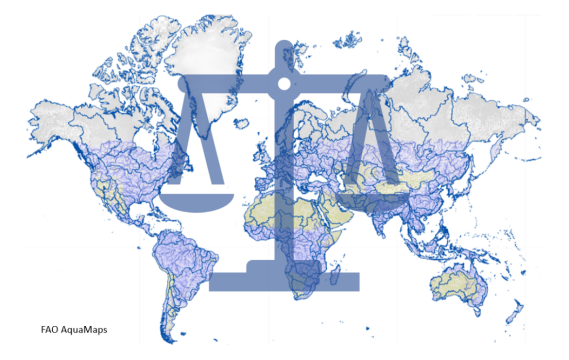With a view to enhancing the impact of our research, the Academy organises its significant body of Affiliates research into four broad Research Interest Areas …
This broad theme considers the interface of international regulatory frameworks governing climate, environment, and natural resources with international water …
Transboundary water cooperation crosses multiple levels of governance – global, regional, and basin-level legal and institutional frameworks and regimes. There…
The general rubric of ‘international economic law’ encompasses all international rules, standards and frameworks related to transnational trade, investment, a…
This general theme reflects the breadth and complexity of international law as a system. It is concerned with systemic issues, processes, institutions, and conc…
This general theme reflects the breadth and complexity of international law as a system. It is concerned with systemic issues, processes, institutions, and concepts, which function to preserve the integrity and unity of the system of international law in the face of disintegrative forces, unleashed by international law’s relentless expansion, specialisation, and diversification.
A wide range of systemic processes contribute to convergence, all of which are prominently present in the continuing development and emerging practice of international water law. These include, for example, the structured elaboration of legal instruments through codification of global State practice, increasing judicial concern for legal coherence and unity in the interpretation and application of disparate international rules, and universal rules of treaty interpretation which promote the sharing of normative values across specialist sub-fields of international law. In addition, institutional mechanisms have emerged which foster convergence in their continuing elaboration of conventional normative regimes and of routine inter-State cooperative practice.

For example, the Secretariats of both the Convention on Biological Diversity and the Ramsar Convention on Wetlands offer and promote detailed technical guidance to assist the adoption and application of ecologically sound water resources management in international watercourses. Similarly, an increasing number of river basin organisations (RBOs) actively engage in the protection of groundwaters, the maintenance of biodiversity and promotion and protection of human rights. The soft law of the Sustainable Development Goals (SDGs) provides further impetus to the management of transboundary water resources directly through Goal 6.5: implement integrated water resources management at all levels, and through transboundary cooperation as appropriate, and indirectly through Goal 16: promote peaceful and inclusive societies for sustainable development.
The International Court of Justice (ICJ) in the Hague (Netherlands) is the principal judicial organ of the United Nations (UN). It has a dual role: to settle in accordance with international law the legal disputes submitted to it by States, and to give advisory opinions on legal questions referred to it by duly authorised international organs and agencies. In recent times, the ICJ has heard cases related to water disputes between watercourse states in Africa, Europe, and Latin America.
The second international court in the Hague, the Permanent Court of Arbitration (PCA) offers a wide range of services for the resolution of international disputes which the parties concerned have agreed to submit for resolution under its auspices. The PCA has no sitting judges: the parties select the arbitrators. The PCA assists States to set up arbitral tribunals, fact-finding and inquiry commissions, good offices, mediation, and conciliation and drafting dispute resolution clauses for international agreements by providing model clauses. The PCA has been engaged in the resolution of high-profile international water resources disputes (Kishenganga Arbitration). The PCA is also specialised in environmental dispute resolution and trade law and investor-state arbitrations.
IWLA research under this theme
Kong L. The Dispute over the Status and Use of the Waters of the Silala case and the customary rules on the definition of international watercourse. RECIEL. 2020; 29:322–335.
Mahbub NT. The role of proportionality in the law of transboundary waters. RECIEL. 2020; 29:349–360.
Rieu-Clarke A. Can reporting enhance transboundary water cooperation? Early insights from the Water Convention and the Sustainable Development Goals reporting exercise. RECIEL. 2020; 29:361–371.
![]() Tel: 86-027-68756726
Tel: 86-027-68756726
![]() Address: Wuhan University China Institute of Boundary and Ocean Studies (CIBOS), P.R. China,
Address: Wuhan University China Institute of Boundary and Ocean Studies (CIBOS), P.R. China,
© International Water Law Academy. All Rights Reserved.